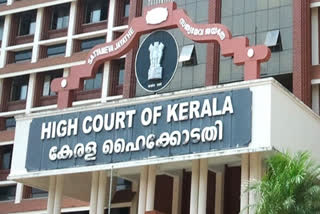Kochi (Kerala): A petition has been submitted in the Kerala High Court seeking a direction to set aside the notification issued by the Travancore Devaswom Board which prescribes that only 'Malayala Brahmins' alone are entitled to apply to the post of Melsanthi (head priest) in Sabarimala and Malikappuram Temples. The petition has been filed by Sijith TL and Vijeesh PR through advocate TR Rajesh.
The petition contends that the prescription in the notification to the effect that only Malayala Brahmin of Kerala origin alone is entitled to apply for being appointed as Melsanthi in Sabarimala and Malikappuram Temples is a violation of the Fundamental Right guaranteed under Article 14, 15 and 16 of the Constitution of India. Petitioners sought to set aside the notification to the extent it restricts applications only from Malayala Brahmins to the post of Melsanthi in Sabarimala and Malikappuram Temples. Kerala High Court posted this matter to July.
In the petition, they said, "The petitioners are Melsanthis working in two major temples in Kerala. They are fully qualified for being appointed as Melsanthis in any of the major temples run by the Devaswom Boards in the State. They are well conversant with the Poojas, Tantras, Mantras which are necessary for offering Poojas in the major temples in Kerala. They are aggrieved by the notification issued by the Travancore Devaswom Board inviting applications to the post of Melsanthi in Sabarimala and Malikappuram Temples under the Travancore Devaswom Board since the notification contains a clause that only a Malayali Brahmin alone is entitled to apply to the above post. The above clause contained in the notification is in utter violation of Articles 14, 15(1) and 16 (2) of the Constitution of India."
Read:Sharp fall in offerings at Sabarimala temple
The petitioners rely on the judgment of the Supreme Court in Adithyan vs Travancore Devaswowm Board (2002) (3) KLT 615 (SC) and Adi Saiva Sivachariyargal Nala Sangam and Others vs Government of Tamil Nadu and Others (AIR 2016 (S.C) 209) wherein it was held that the exclusion of some and inclusion of a particular segment or denomination for appointment as Archakas/Priest would not violate Article 14 so long such inclusion/exclusion is not based on the criteria of caste, birth or any other constitutionally unacceptable parameter.
